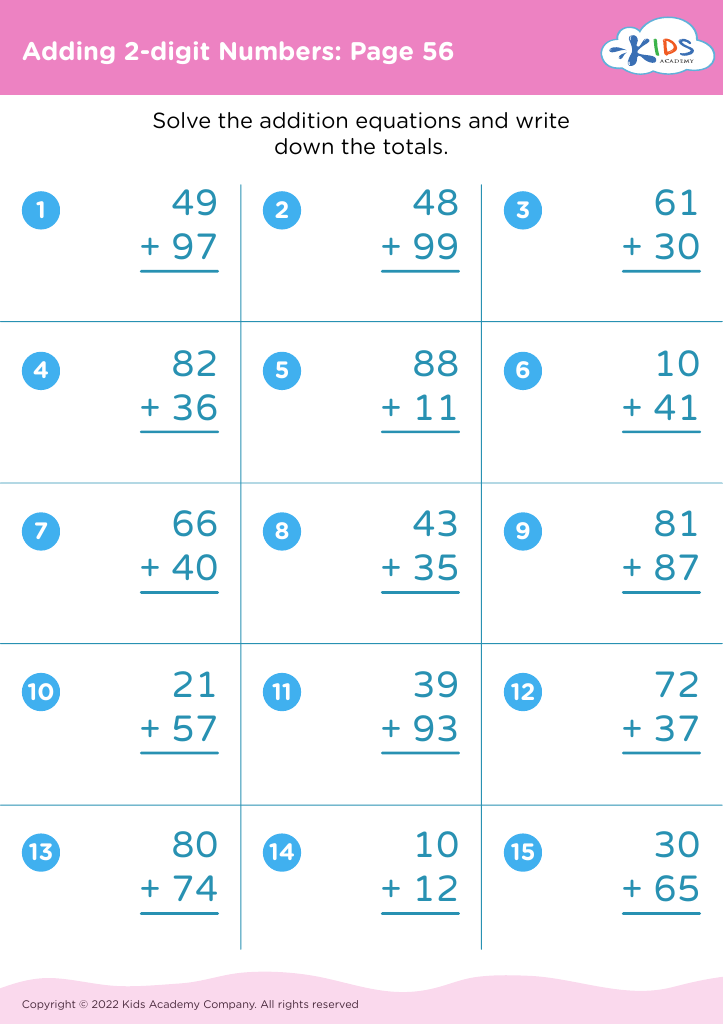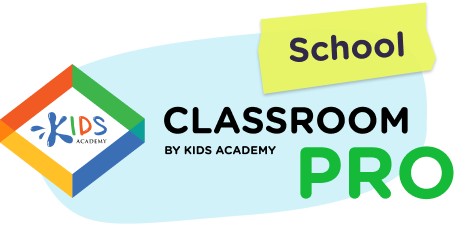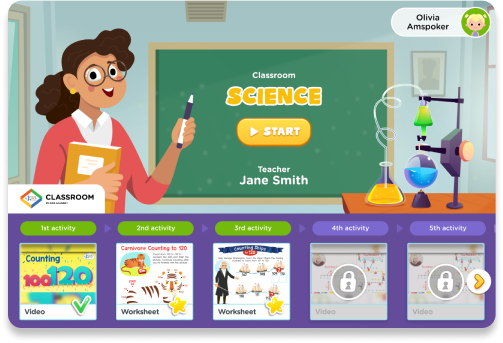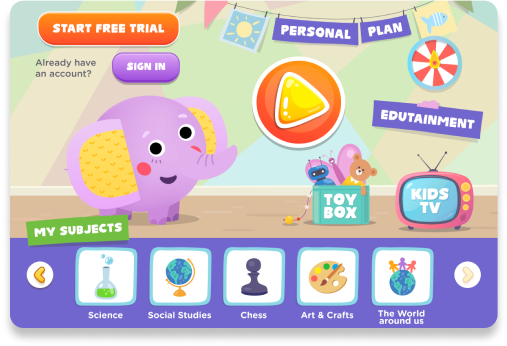Understand sequencing Worksheets for Ages 7-8
3 filtered results
-
From - To
Discover engaging sequencing worksheets designed for children ages 7-8! These printable resources help young learners develop critical thinking and comprehension skills by organizing events in a logical order. Our carefully crafted worksheets feature a variety of fun activities, including stories to sequence, picture arrangements, and interactive challenges that make learning enjoyable. Sequencing is a vital skill that enhances reading and problem-solving abilities, aiding children in both academic and real-world situations. With our clear instructions and colorful graphics, your students will be excited to practice sequencing and strengthen their cognitive abilities. Start exploring our collection and support your child’s educational journey today!
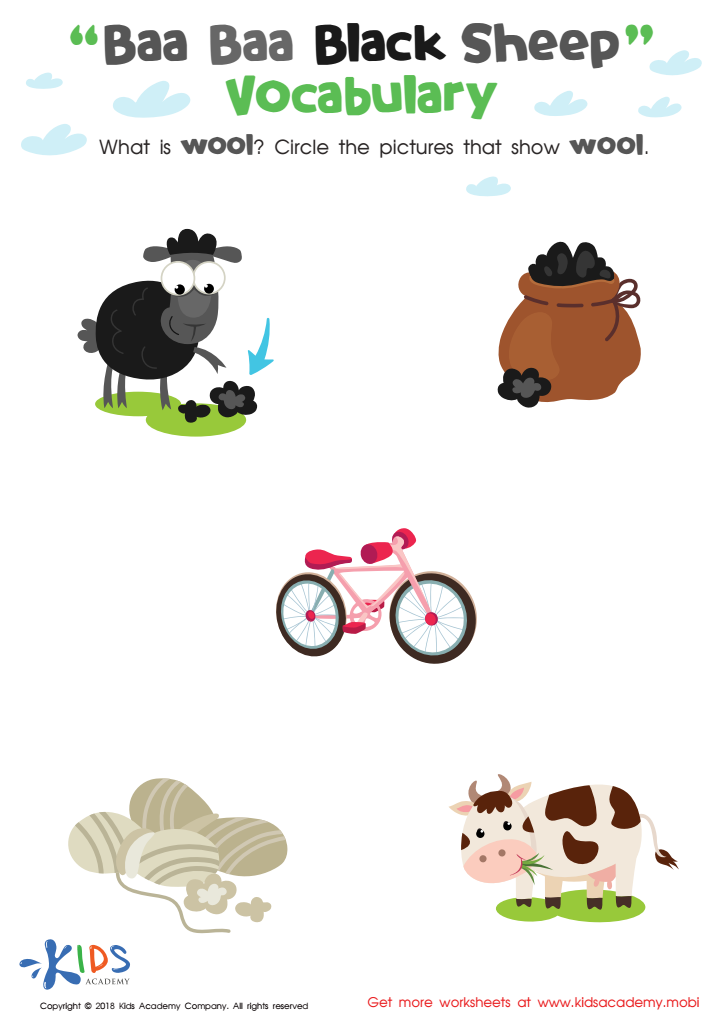

Baa Baa Black Sheep: Vocabulary Worksheet
Understanding sequencing is vital for children ages 7-8, and both parents and teachers should prioritize it for several reasons. At this developmental stage, kids are engaging more deeply with narratives in reading and beginning to create their own stories. Mastering sequencing helps them grasp the order of events, which enhances comprehension skills and allows them to follow along with complex texts.
Moreover, sequencing skills play a crucial role not only in language arts but also in mathematics. Children learn to recognize patterns and methods in problem-solving, which underpins concepts like addition and subtraction. Moreover, the ability to understand and follow a sequence fosters critical thinking, enabling them to make connections between events, such as cause and effect.
Furthermore, social skills are enriched through the understanding of sequencing, as children learn to communicate clearly, share stories coherently, and engage in group activities. Helping children master sequencing not only fuels their academic success but also equips them with essential life skills that promote decision-making and organization.
By collaborating in this developmental area, parents and teachers can support a child’s growth into a thoughtful, analytical thinker capable of navigating various challenges both in school and beyond.
 Assign to My Students
Assign to My Students
